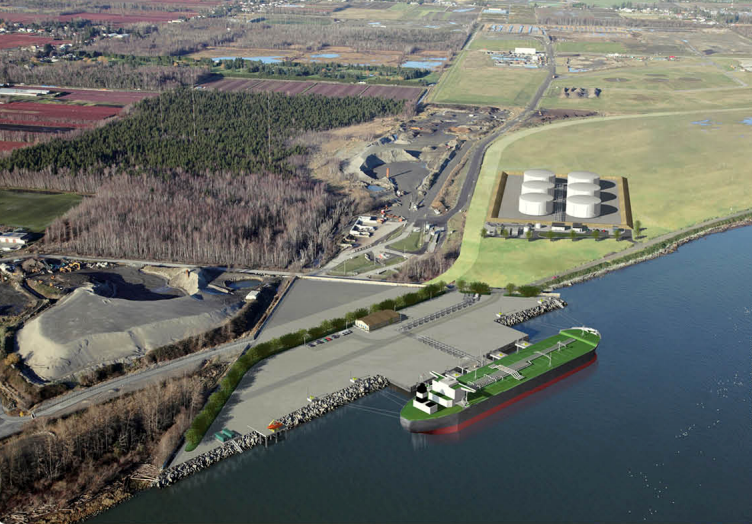A controversial jet fuel pipeline soon to be built across Richmond may get bigger, after its proponents filed for an amendment to the project’s environmental certificate.
The Vancouver Airport Fuel Facilities Corporation is now asking the B.C. Environmental Assessment Office to amend the certificate in order to approve a 10 per cent increase in pipeline diameter, as well as some route changes between the storage facility near Riverport Entertainment Complex and Vancouver International Airport.
VAFFC, a consortium of airlines operating out of the airport, stated in an email the proposed increase in size of the 13-kilometre pipeline is “marginal,” from 324 millimetres to 356, and will improve efficiency while reducing capital and operating costs.
Also, the pipeline route will shift. VAFFC now wants to put the pipeline along Bridgeport Road, as opposed to some local roads, and is proposing other route changes in south Richmond.
Two public information sessions will be held in May, with VAFFC staff on hand to answer questions and provide comment opportunities.
Details of the amendments will not be available online until May 13, one day before the first public session. Thereafter, the public can submit comments online for 21 days.
The certificate was initially issued in December 2013, following the federal government’s “harmonized” environmental review that did not include Environment Canada or the Department of Fisheries and Oceans — a point of contention with local residents.
In February, Port Metro Vancouver issued VAFFC a permit to build a loading dock and six storage tanks for 80 million litres of fuel.
Steveston-Richmond East MP Joe Peschisolido has called for a full review of the port, targeting its apparent decision-making autonomy.
The pipeline must still receive a permit from the BC Oil and Gas Commission, which will include more public consultation.
The City of Richmond has opposed the project, citing concerns over fire safety, among other things. VAFFC maintains the project is committed to a safe and responsible fuel delivery system.
Presently, the airport gets fuel from a refinery in Burnaby and up to 1,200 truck deliveries from the U.S. a month.
Amendment and public information session information can be viewed at VancouverAirportFuel.ca.
The first session is May 14 at the Executive Airport Plaza from 1-5 p.m.
Update: In the April 27 edition of the Richmond News (above story), it was stated that Environment Canada and the Department of Fisheries and Oceans were not “involved” in the environmental assessment of the jet fuel storage facility and pipeline project in east Richmond.
In fact, Environment Canada and the Department of Fisheries and Oceans provided advice for an environmental assessment certificate issued by the B.C. Environmental Assessment Office. However, neither entity was a responsible authority in the process, as they have been in the past.
The News also wishes to clarify that details of a recent application by VAFFC to expand the pipeline’s diameter can, in fact, can be found online at the B.C. Environmental Assessment Office website at the Project Amendment Report page.
The application is not directly found on the website of the VAFFC; however, there is a link to the government page.



